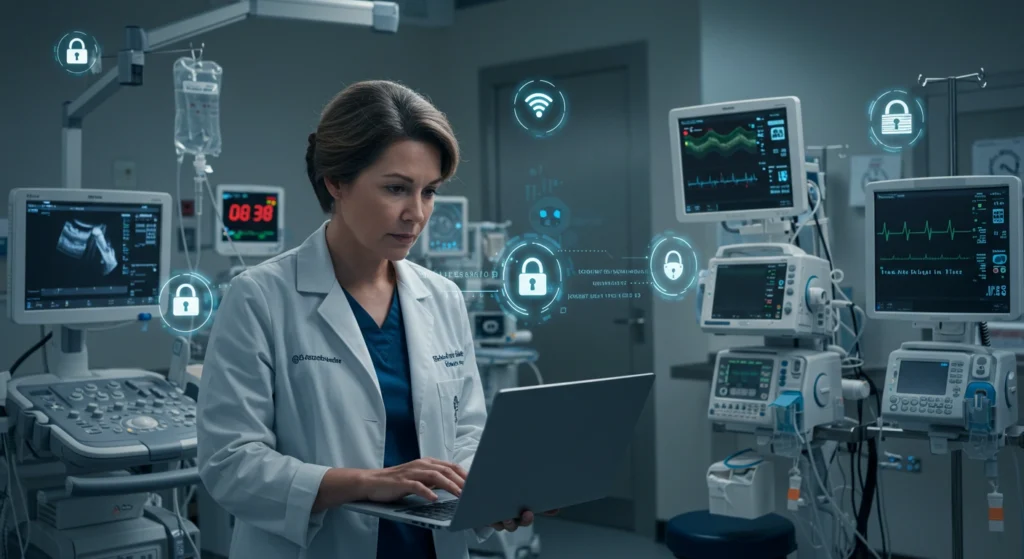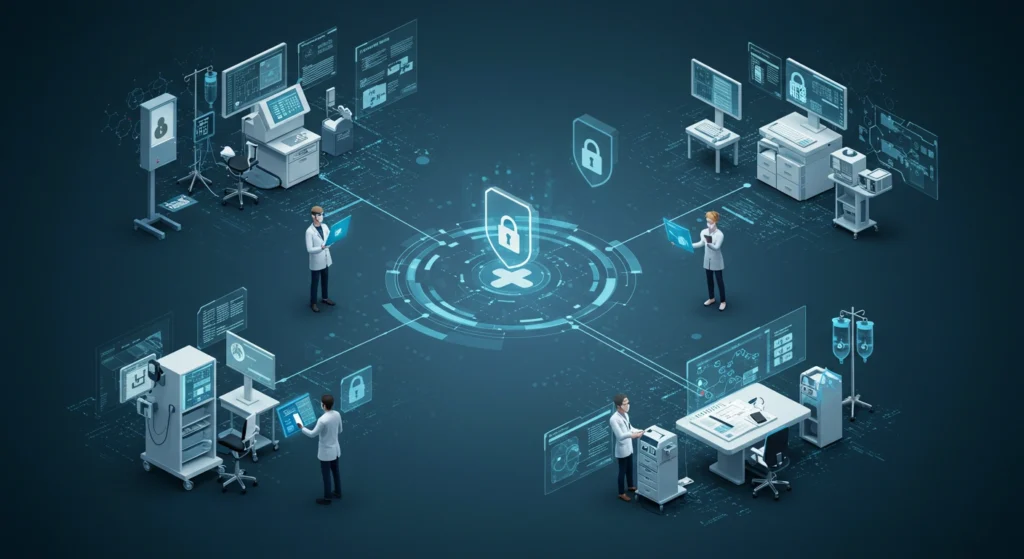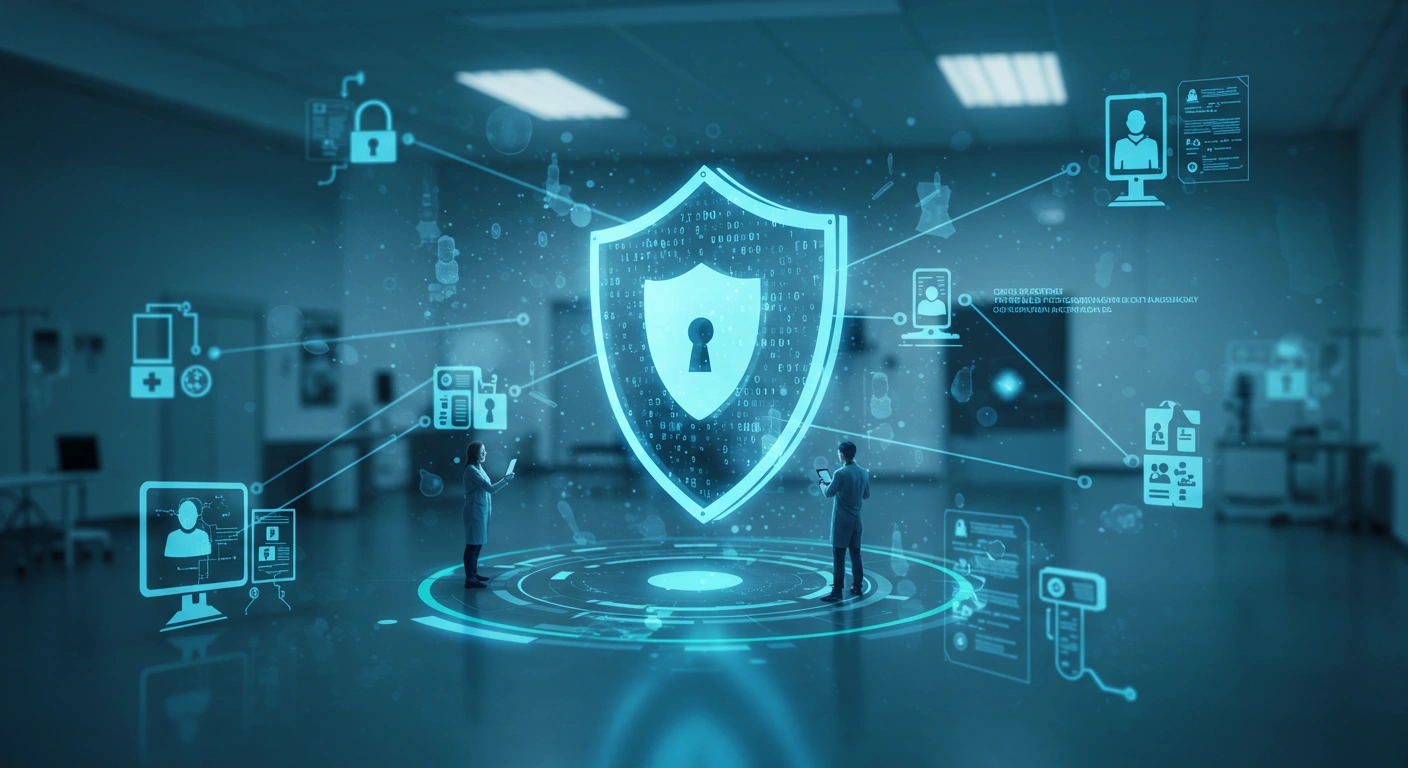Healthcare has gone way beyond just patient care— in today’s digital maelstrom, it’s also about protecting the digital lifelines behind it. In 2025, cyber threats are targeting everything from EHRs to pacemakers. Why? Because, aside from raising a bit of Hell, it pays. And at the end of the day, that’s their bottom-line. For them it’s a business — nothing personal. This guide is here to explain why cybersecurity for healthcare providers is mission-critical and how healthcare cybersecurity companies are stepping up to protect patients, data, and trust. So, let’s dive in and get a gander at the scary world of healthcare targeted cyber security.
Cyber Threats Are Taking Aim at Healthcare
The healthcare industry has become a top target for cybercriminals—and there’s a rhyme to the reason — a method to the madness. Sensitive data, legacy systems, and high-pressure environments make it a goldmine for attackers. It’s the sort of place where every document, folder, or JPG stolen is rife with great data — they don’t have to cherry pick, there’s always something that can be valuable and sold to the right bidder.
The Surge in Attacks
The numbers are staggering. In 2024 alone, more than 80 million health records were exposed in data breaches, in that year healthcare surpassed finance as the most-targeted industry. And part of that is because, up until that point, healthcare wasn’t exactly taking into account that they were a target. Financial institutions are close-knit, they do their best to either silo their suppliers or to dominate their inner workings to the point that they are seen as draconian. Why? Because a bank has always been a target. Meanwhile, up until a couple of years ago, hospitals weren’t on any crooks list. That is until information became a valuable commodity.
That trend isn’t slowing in 2025—it’s accelerating.
Ransomware attacks have shut down hospitals for days. Phishing scams have fooled doctors and administrators. And medical devices, many of which are now connected to Wi-Fi, are proving to be security nightmares.
And what does this translate to? Patient safety, institutional trust, and financial stability. That’s why cybersecurity for healthcare is rapidly becoming a linchpin on which patient care hinges on. It is no longer an IT issue, it’s part of the overall service — to the point that it’s even demanded by governmental bureaucracy and insurance companies.
Why Cybersecurity Is Vital for Healthcare Providers

More Than Data—It’s About Lives
When a hospital’s system goes down, it’s not just snafu—it’s life-threatening. Without access to digital records, imaging, or drug databases, patient care slows or even stops. To that point, attacks on hospital and healthcare departments are seen by many as acts of terrorism.
Cybersecurity failures don’t just lead to lawsuits. They don’t just lead to a couple of records being plundered.They can cause actual tangible physical damage. They are life- threatening.
And let’s not forget your brand and reputation being ripped apart. Patients trust healthcare providers with their most private information. Losing that trust is a punch —to the wallet and to your guts.
How Healthcare Cybersecurity Companies Help Protect the Front Lines
In this do or die landscape, healthcare cybersecurity companies play a critical role in defense. They’re strategic allies helping medical institutions keep the lights on and the data locked down.
Services That Go Beyond the Basics
Here’s what the best healthcare cybersecurity companies are offering in 2025:
- Security audits & risk assessments – to find vulnerabilities before attackers do
- 24/7 monitoring & incident response – to detect and shut down intrusions fast
- Data encryption & tokenization – to protect EHRs and PHI across every channel
- Training & awareness programs – because staff are often the weakest link
Whether it’s a small private practice or a massive hospital network, tailored cybersecurity strategies are being deployed at scale—and they’re saving lives.
Core Components of a Strong Cybersecurity Strategy for Healthcare
Protecting Sensitive Patient Data
Patient data isn’t just confidential—it’s regulated. From names and diagnoses to insurance and payment records, electronic health records (EHRs) and personal health information (PHI) are a top priority.
Healthcare cybersecurity companies help secure that data through:
- End-to-end encryption (both in transit and at rest)
- Role-based access controls – so only authorized personnel can view/edit records
- HIPAA compliance strategies – ensuring organizations avoid the hefty penalties tied to violations
It’s about building trust through transparency and protection. And also about staying above board and in toe with regulations —because healthcare is one of the most audited and overseen and bureaucratic nightmare industries right now.
Multi-Layered Security Protocols That Actually Work
In 2025, one firewall won’t cut it. Anti-viruses are laughed at. And a great password can be hacked with the right training. The name of the game is multi-layered security—stacking defenses on top of defense. It’s sort of like medieval armor – each chink put there and clicked unto place to protect a vital part of the body — it’s about safeguarding your IT ecosystem.
Key tools include:
- Intrusion detection systems
- Multi-factor authentication (MFA)
- Network segmentation to isolate critical systems
- Behavioral analytics to spot abnormal activity in real time
Preventive, detective, and corrective measures must all be in place. It’s like a relay team—each layer picks up where the last one left off.
Securing Devices and Interconnected Systems
Let’s talk about the elephant in the operating room: connected medical devices.
From smart insulin pumps to imaging machines, these devices are often the most vulnerable point in a hospital’s infrastructure. Many were built without security in mind—and retrofitting them isn’t always straightforward.
Healthcare cybersecurity companies are are taking this challenge head on by:
- Conducting device-level vulnerability scans
- Isolating devices on separate networks
- Recommending secure device procurement practices
- Working with manufacturers to embed security from the design stage
Why Healthcare Must Prioritize Cybersecurity in 2025

It’s No Longer “If,” It’s “When”
Whether you’re a local clinic or a regional healthcare network, the message is the same: You are a target. That’s why proactive security measures can’t wait for the next breach.The average cost of a healthcare breach? $10 million, according to IBM. And, if that little number wasn’t enough, there is also the hit to patient care and institutional trust — like Don Draper said: “the most valuable real-estate you’ll invest in, is that one in your consumer’s mind.”
The Role of Cybersecurity Firms in Long-Term Healthcare Success
Healthcare cybersecurity companies are long-term partners. They help organizations evolve, stay on top of the red-tape miasma that is the now, and prepare for threats we haven’t even seen yet.
They help your sale up and stay future-proof — not just reacting to threats and risks.
They also bring industry-specific knowledge, which is crucial when designing security protocols that protect privacy and maintain compliance across multiple regulatory frameworks.
Security Is the Heartbeat of Modern Healthcare
Let’s face it: technology is now at the core of healthcare delivery. So cybersecurity? It’s the new pulse.
Whether it’s protecting patient records, securing medical devices, or ensuring uninterrupted access to care, cybersecurity for healthcare providers is as essential as any piece of clinical equipment.
Healthcare cybersecurity companies are guiding this transformation. They’re helping providers shift from reactive to proactive, from compliance-driven to resilience-focused.




